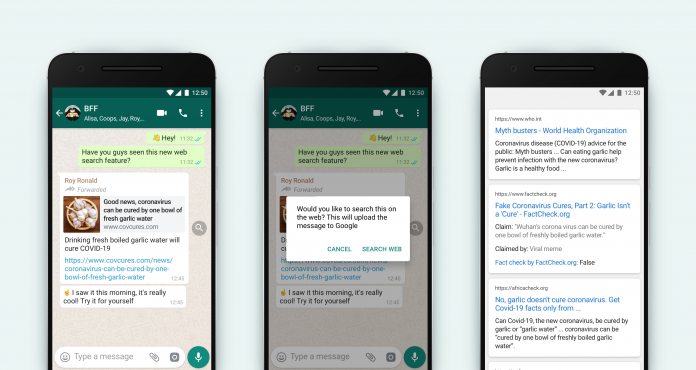While services like Zoom, Microsoft Teams, and Slack battle over enterprise communication, WhatsApp continues to lead the way in terms of consumer-fronted tools. Still, like other communication services, it has struggled to prevent the spread of misinformation. That said, the Facebook-owned company has also done a decent job at avoiding the numerous controversies that have befallen its parent company. WhatsApp has often taken a more proactive approach to keeping users safe, keeping content private, and helping them avoid fake news. Search the Web is the next step. By using the tool, users can find stories when they are discussing a topic. Not only does the tool provide more information on the subject matter, it can weed out fake information. In a blog post, WhatsApp showed an example. A user was discussing the incorrect claim that boiled garlic water can be consumed to cure COVID-19. By using the new magnifying glass icon, the user could search the web. Results show fact checking websites that highlight whether information is incorrect or not.
Stopping Fake News
During the COVID-19 pandemic, WhatsApp has introduced several measures to stop the spread of misinformation. In April, the company restricted the use of double arrow messages. WhatsApp debuted the double arrows feature back in 2019. It allows users to know which messages have come from third-party sources and have been shared many times. Amid COVID-19, users have been limited to one double-arrow message per chat. Search the web is being rolled out starting today in Brazil, Italy, Ireland, Mexico, Spain, UK, and US




